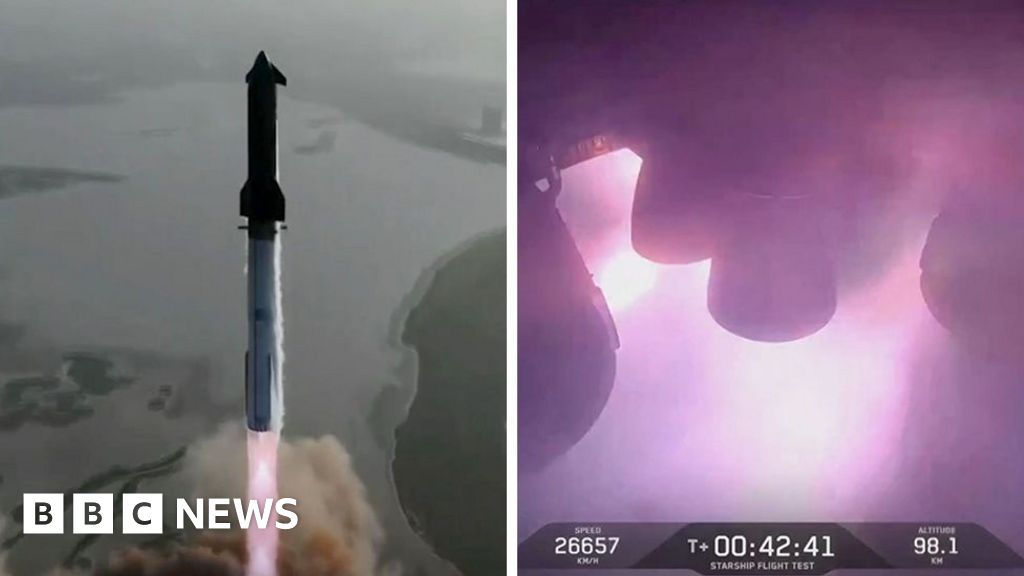Sources: 

SpaceX's ninth Starship test flight, launched on May 27 from its Texas Starbase, ended abruptly when a fuel leak caused the rocket to lose control and disintegrate over the Indian Ocean, destroying eight Starlink payloads.
The flight aimed to demonstrate Starship's ability to carry test payloads and survive reentry, using a previously flown Super Heavy booster. However, roughly 30 minutes into the mission, the spacecraft experienced a "rapid unscheduled disassembly," according to SpaceX.
This failure follows two recent unsuccessful test flights, highlighting ongoing challenges for SpaceX's ambitious plans. The Federal Aviation Administration (FAA) had paused Starship flights after the eighth flight's failure but cleared the ninth flight after completing its investigation just days prior.
"Starship experienced a rapid unscheduled disassembly," SpaceX stated on its social media platform X.
Elon Musk has long envisioned Starship as the vehicle to carry humans to Mars, with uncrewed test flights planned first. He is targeting late 2026 for the first crewed mission, but repeated test failures cast doubt on meeting this timeline.
"As long as the test flights keep ending early, that goal looks harder to reach," analysts note.
The loss of eight Starlink test payloads also represents a setback for SpaceX's satellite internet ambitions, as these payloads were intended to expand the Starlink constellation.
Despite setbacks, SpaceX continues to push forward with Starship development, aiming to resolve technical issues and achieve reliable flight operations in the near future.
This latest failure underscores the technical complexity and risks inherent in developing next-generation heavy-lift rockets for deep space exploration.
Sources: 
SpaceX's ninth Starship test flight on May 27 ended in failure when a fuel leak caused the rocket to lose control and disintegrate over the Indian Ocean, destroying eight Starlink payloads. The FAA had just cleared the flight after investigating the previous failure, delaying SpaceX's Mars ambitions.





